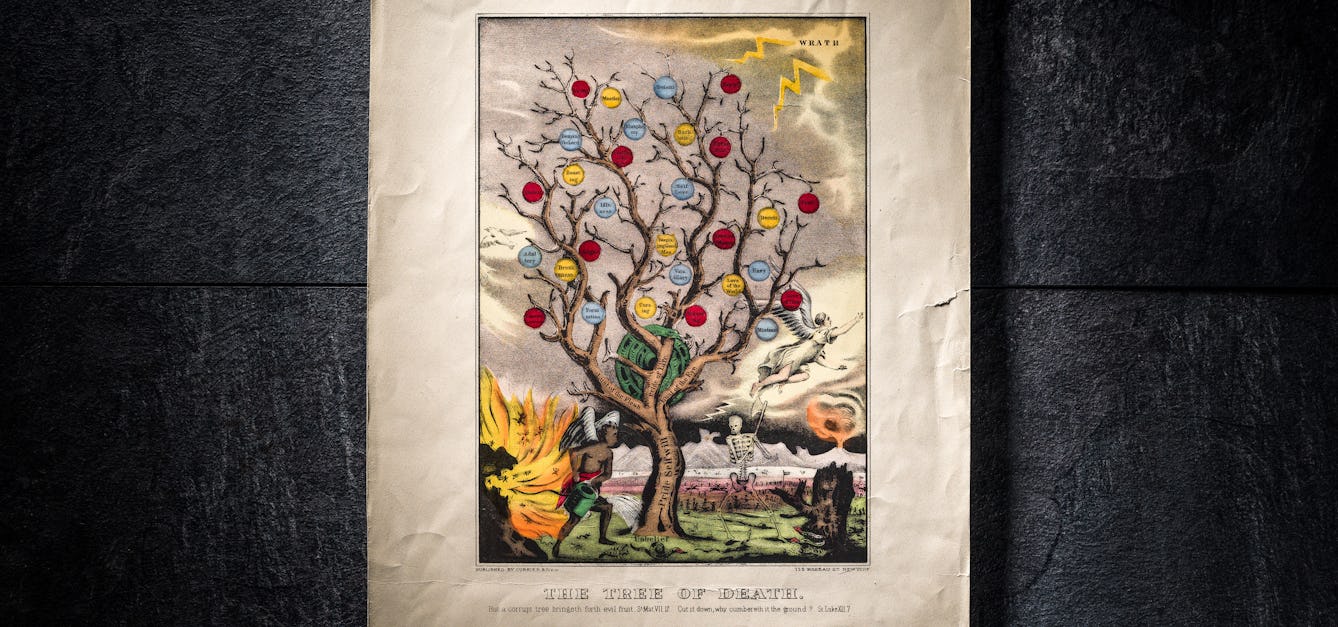Stories

- Article
The evil eye and social anxiety
The ‘look’ of the evil eye is believed to bring bad luck, illness or even death. This ancient curse might be deliberate, inflicted with an envious glare, or it could be accidental, the result of undue attention or excessive praise.

- Article
Why all of us are evil
Science proves that we’re all capable of evil: your secret fantasy about killing someone you hate is surprisingly normal. But the way to better moral choices is to fight emotional instinct.

- Article
Shame, condemnation and conscience
Where does shame comes from and what fuels it? Lucia Osborne-Crowley explores audience, gender and the difference between shame and guilt, asking if either can ever be useful.

- Article
Reassuring ghosts and haunted houses
Explore the perversely comforting appeal of a ghost in the house.
Catalogue

- Books
- Online
The Good and evil of tobacco.
Date: 1878- Books
- Online
An essay on the nature and cure of the king's evil. Deduced from Observations and Practice, And designed for the Publick Good. By a private gentleman of Halsted in Essex.
Morley, John, -1776.Date: M.DCC.LX. [1760]- Books
- Online
An essay on the nature and cure of the king's evil, deduced from observation and practice. The fourth edition, with additions, and a great variety of cases and their remedies, with a plate of the herb vervain: Published, for the Good of Mankind, particularly the Common People. By John Morley, Esquire, of Halsted, in Essex.
Morley, John, -1776.Date: [1768]- Books
- Online
An essay on the nature and cure of scrophulous disorders, vulgarly called the king's evil, deduced from observation and practice. The eighth edition. With Additions, and a great Variety of Cases and their Remedies, And Occasional Remarks. With a plate of the herb vervain: Published for the Good of Mankind, particularly the Common People. By John Morley, Esq; Of Halstead in Essex.
Morley, John, -1776.Date: [1772]- Books
- Online
An essay, on the nature and cure of scrophulous disorders, commonly called the King's evil; deduced from observation and practice. As also, a variety of cases; The remedies in them used, and occasional remarks. To which is prefixed A Coloured Plate of the herb vervain, and its Root. Published for the Good of Mankind; particularly the Common People. By John Morley, Esq; of Halstead in Essex.
Morley, John, -1776.Date: [1773]









